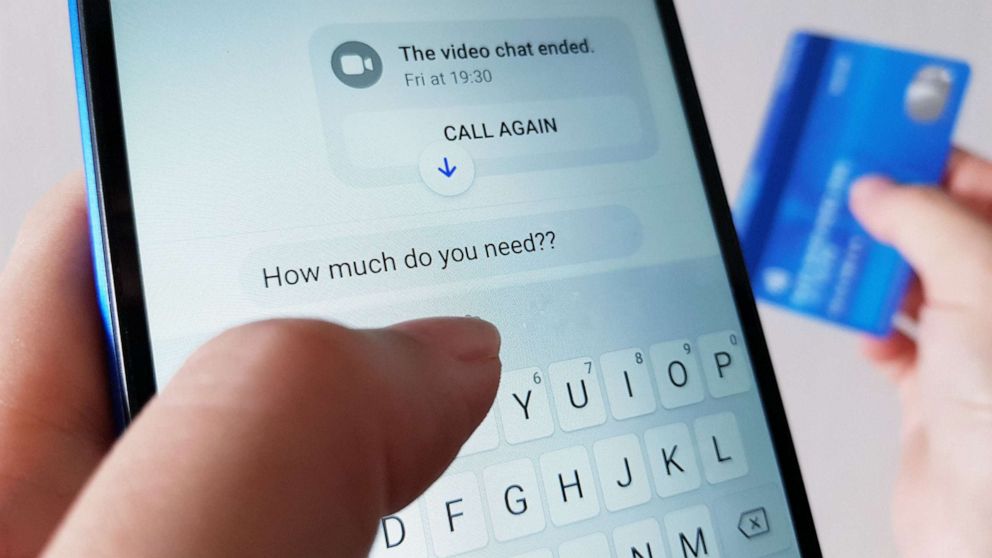Laura, a 23-year-old internet enthusiast, couldn’t have imagined that she would fall prey to romance fraud when she turned to gaming during the pandemic. She sought solace from the boredom and isolation of the pandemic and her medical condition, so she turned to gaming apps in 2020. Through such a platform, she connected with Brad, a fellow gamer from the United States. As their friendship grew into flirtation, they discovered a wealth of shared interests in games and music, leading them to believe they were a perfect match.
As the months passed, Brad began to share his financial struggles with Laura. Laura noticed that Brad was consistently unavailable for phone conversations despite exchanging numbers. He never directly asked for assistance, but Laura, driven by compassion, offered to help him out. Over the next few weeks, she transferred around £400 to Brad. It wasn’t until her friends expressed concerns about their relationship that she started questioning its authenticity.
Digging Deeper: Unmasking the Fraudster
Upon realising something seemed amiss in her online relationship with Brad, Laura felt compelled to investigate his true identity. She began by examining the email address associated with his profile and, to her shock, discovered it belonged to a young woman around her age. The revelation left Laura questioning everything she thought she knew about Brad and their blossoming connection. Determined to uncover the truth, Laura confronted the woman behind the email address. Initially, the woman attempted to deny any wrongdoing and even tried to gaslight Laura by making her question her sanity.
However, as Laura persisted, the woman finally admitted to her deception. Laura learned that the money she had sent, which she believed was to help Brad with financial difficulties, was actually used to fund the woman’s travel expenses to visit her real-life boyfriend.
The Escalating Issue of Romance Fraud
Laura’s experience is far from unique. Action Fraud reported that nearly £90 million was lost to romance scams in 2022, and the actual figure may be even higher due to underreporting. Barclays’ latest data shows that romance fraud risks have increased over the past year, with a 60% surge in scam attempts in the previous six months. The data also reveals that despite being confident they won’t fall for scams, young adults are twice as likely to be victims compared to older adults.
Feeling betrayed and manipulated, Laura sought justice and contacted the woman’s boyfriend through social media. Fortunately, he was unaware of his partner’s deceit and expressed genuine remorse for Laura’s ordeal. With his assistance, Laura was able to recover the money she had sent, which offered her some sense of closure.
The Cost of Living Crisis: A Plus for Fraudsters
Lisa Mills, a romance fraud expert at Victim Support, explains that the cost of living crisis has exacerbated the issue. Fraudsters may pretend that the crisis has driven them into debt or claim that they urgently need financial assistance to survive. For victims, the financial impact of these scams is more severe than ever, with many struggling to afford basic necessities like food and heating.
Contrary to popular belief, romance fraud victims are not limited to older, less tech-savvy individuals. Mills highlights a 38% increase in victims supported by their charity, with 60% being women. She emphasises that being tech-savvy does not protect someone from emotional manipulation and online grooming, making anyone susceptible to romance fraud, regardless of age or technological prowess.
Recognising Red Flags and Overcoming Shame
Ross Martin, Head of Digital Safety at Barclays, lists several warning signs to watch for, such as profiles with limited or glamorous photos, rapid responses, early declarations of love, reluctance to meet in person, and requests for money. Despite the increasing prevalence of romance fraud, victims often hesitate to share their stories due to the shame and stigma associated with being duped.
Samantha Cooper, a romance fraud private investigator, emphasises the need to change public perception and reduce victim-blaming. She believes that many cases involving smaller amounts of money go unreported due to shame. Cooper adds that discussing any failed romantic relationship can be difficult, with the added layer of fraud making it even harder to open up.
The Ever-Present Threat of Romance Fraud
Cooper warns that romance fraud can affect anyone, regardless of age or technological expertise. She argues that even the most tech-savvy individuals can let their guard down, particularly on social media. The false sense of security people feel when using dating apps and social media in the comfort of their own homes can lead to a lack of vigilance. Furthermore, dating platforms need to do more to prevent these crimes from occurring.
To address the issue, it is crucial to create a more open and honest dialogue about the experiences of victims. By fostering a less judgmental environment, more people will come forward, allowing us to gain a deeper understanding. Increased awareness and knowledge can help identify potential warning signs and prevent future scams from taking place.
Tips for Protecting Yourself Online
While romance fraud remains a pervasive issue, there are steps individuals can take to protect themselves from potential scams:
- Stay vigilant: Be aware of red flags, such as limited photos, requests for money, and reluctance to meet in person. Keep an eye out for inconsistencies in the information shared by the person you’re communicating with.
- Do your own research: Before getting too involved with someone online, conduct a background check by searching for their name, email address, and social media profiles. Look for any suspicious activity or signs that their online persona might be fabricated.
- Be cautious with personal information: Avoid sharing too much personal information online, including your full name, address, and financial details. Fraudsters can use this information to steal your identity or commit fraud.
- Verify their identity: If you feel a strong connection with someone online, consider video chatting or meeting in person to confirm their identity. Remember that photos and messages can be faked or stolen, so it’s essential to establish a genuine connection.
- Seek advice from friends and family: If you have concerns about someone you’re communicating with online, discuss your feelings with trusted friends or family members. They can offer valuable insights and help you determine whether the relationship is genuine or a potential scam.
By taking these precautions, individuals can better protect themselves from romance fraud while still enjoying the benefits of online connections. The key is to maintain a healthy balance between trust and vigilance. Ensuring that genuine relationships can flourish while avoiding the pitfalls of scams and deception is paramount.



